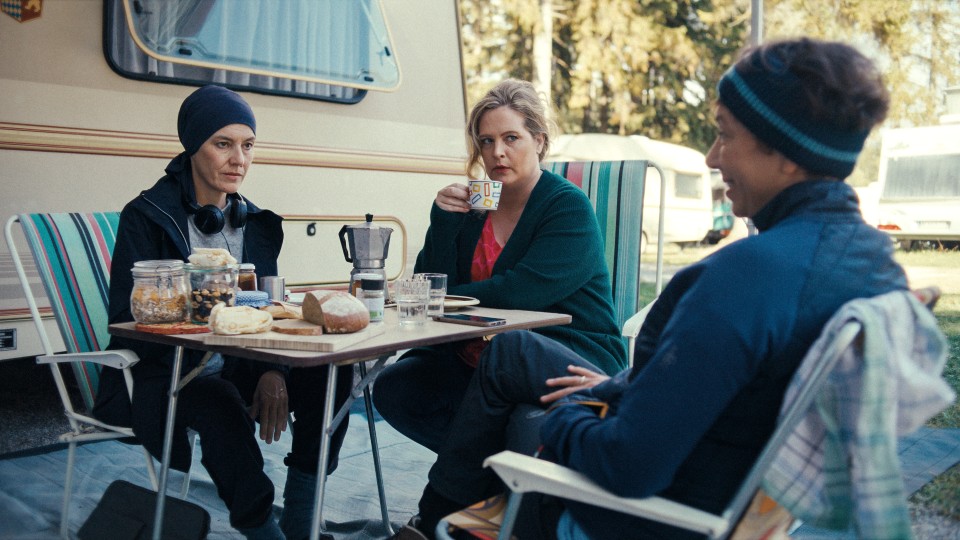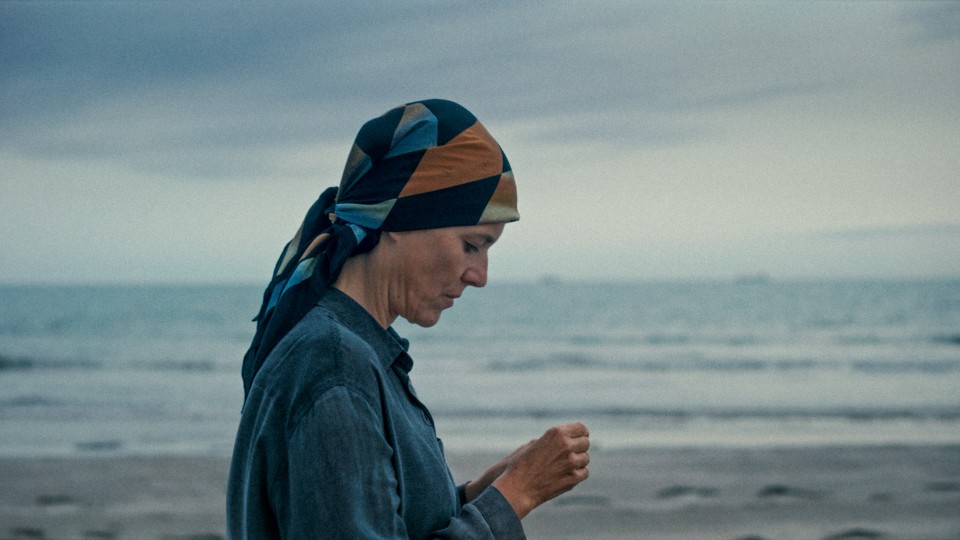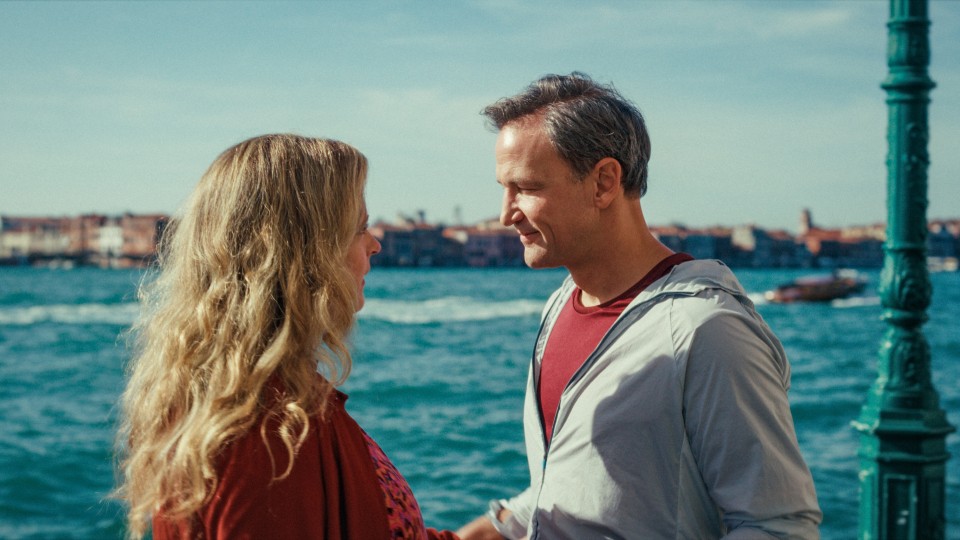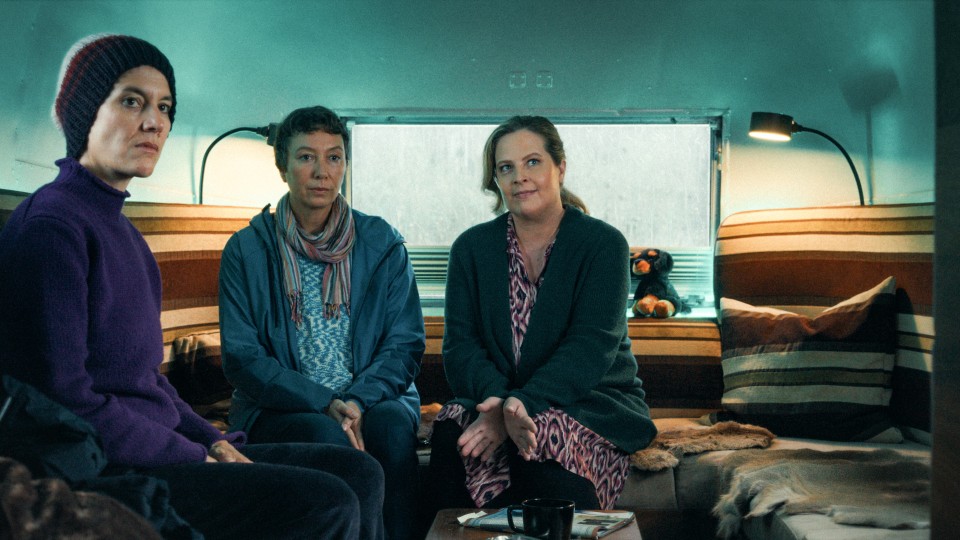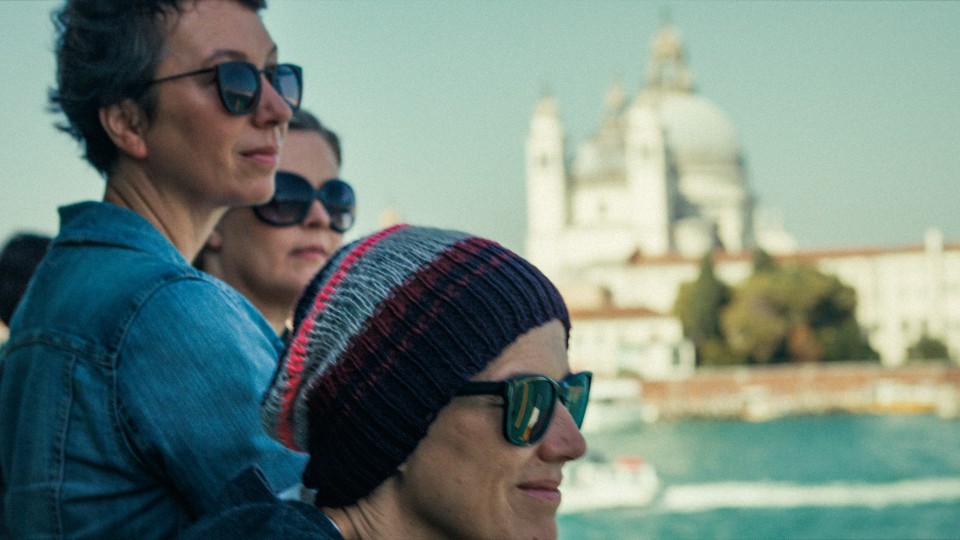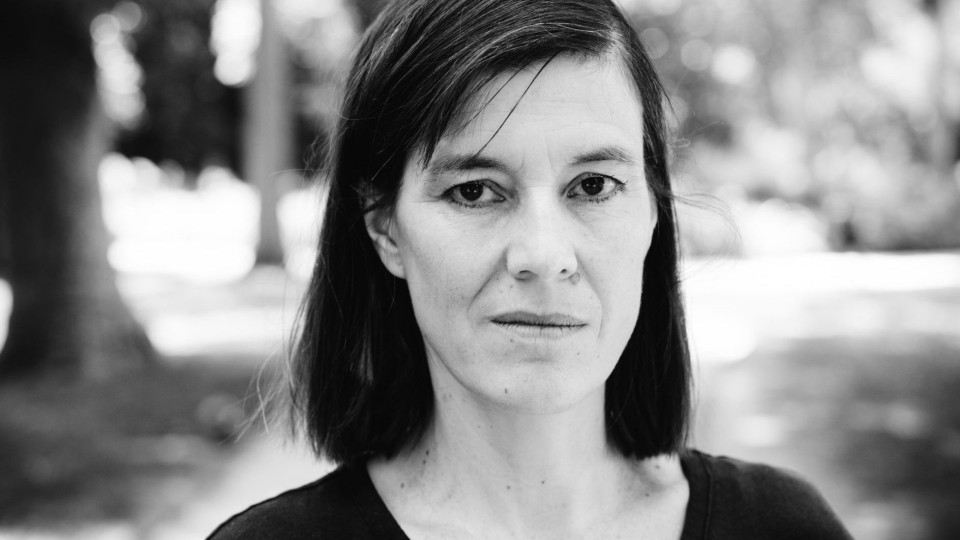Astrid, Elli and Isabella have known each other since the days when school was just behind them and life was ahead. It was
the time when they shared freedom and sorrows, as well as an apartment. Today they are around 50. A vacation together – an
annual occurrence – is intended to maintain the old ties, but things just aren’t the way they used to be anymore. In IT’S ALL GOING SOUTH Pia Hierzegger sends her three women south, where – despite the sun, Aperol and the sea – they are also forced to confront
themselves.
Alongside a busy career in the theatre, and acting in various media, you have also written scripts for television in recent
years. Was that when you became interested in writing a feature film screenplay?
PIA HIERZEGGER: I realized that I wanted to develop an idea myself, without having a concrete aim in mind. So initially it was a kind of
shot in the dark, but then the United Writers workshop at the Screenwriters Forum gave me the impetus to submit something
concrete, and I finished the first draft in the middle of the Covid epidemic. From then on, things gradually took their course,
with Film AG as my production company. I was mainly interested in the freedom to write – the idea of directing the film came
from my producers, Johanna Scherz and Alex Glehr.
These days more and more attention is being paid to friendship, as a more robust relationship than a partnership, a more relaxed
bond than a family. Is friendship a topic of our day, a perhaps underestimated pillar in our lives?
PIA HIERZEGGER: Maybe it’s connected with the fact that we all had to manage without friends during the Covid period – which also saw a lot
of friendships ending, due to differences of opinion on that subject. There are coaches around to rescue relationships, but
friendships are simply gone, or they end up being just nominal friendships that you don't really feel anymore. I was interested
in the question of how much you have to work on a friendship, perhaps even changing yourself so it continues to work. I know
some friendships that seem eternal, so what is it that makes them last while you lose sight of other friendships as soon as
you have different life plans?
In IT’S ALL GOING SOUTH three friends go on holiday together for a few days, as part of a tradition. What are the special
characteristics of a female friendship per se and especially a friendship involving three people?
PIA HIERZEGGER: The dynamics involved in a group of three are of course far more powerful, because there can always be a two-against-one
situation, and that makes it much harder work. It also provides more potential for storytelling, and greater compromises are
required, because there’s very often a minority and a majority in this triangle. In this case, one of my starting points was
that there should be three people; I was interested in that dynamic. It never occurred to me that the three friends shouldn’t
be women. I’m familiar with this arrangement; in the theatre I sometimes work in a trio of directors, and I go away from time
to time with two female friends. Although our vacations are completely different.
What’s the backstory shared by Astrid, Elli and Isabella? What still holds them together after all these years?
PIA HIERZEGGER: They shared an apartment during that crucial phase after school when everything was in flux and their paths in life hadn’t
yet been decided. We learn that Astrid left the apartment at some point to move in with her boyfriend, and they’re still a
couple. When you spend a lot of time together during the period when a lot of decisions are made about the direction your
life will take, it’s a very formative experience. For women, that also involves discussing many things very openly, so they
know each other very well. In those days, people still talked to each other on the phone for hours.
Did you intend from the outset that there had to be a touch of comedy running through the whole thing?
PIA HIERZEGGER: I don’t even see it myself, at first. But it turns out that I like to adopt a humorous perspective on things. I find it hard
to cope with a lack of humour. I need that viewpoint, which makes it easier for me to look at sad things with a smile, and
I also think we’re laughable creatures who like to put ourselves in very ridiculous situations. What interests me is laughing
with people, because then you recognize yourself in them. I don't want to laugh at anyone; it’s more a way of connecting with
them through laughter.
Chris, the neighbour at the campsite, is a swaggering denier of Covid and climate change, while Astrid has become an eco vigilante.
Have the developments of recent years also created new material for wry observations of human beings?
PIA HIERZEGGER: There have always been people who are politically right-wing. They demonize different things than ten years ago, which is
how we recognize them today. In the past, other subjects would have emerged as tell-tale signs. Astrid, who sets herself up
as a guardian of language and ecology issues, is certainly a more familiar profile at the moment, although I also see elements
of myself in her: privately, I try to be more relaxed about things and not to insist I always know best. In general, I think
the tendency for people to believe they’re always right and have to lecture others is on the decline again. These days, it
would be smarter to talk to other people and try to establish common ground, rather than feeling the need to prove to them
that you're right.
Your protagonists are anything but old women, but the original title ALTWEIBERSOMMER (literally OLD WIVES’ SUMMER, meaning
Indian summer) does allude to a season when aging appears on the horizon. Are you depicting a time in life when differing
concepts of existence are being put to the test?
PIA HIERZEGGER: The title is meant ironically. Age isn’t a theme of the film. It's more about reaching a point in life where you've already
done and experienced a lot. You know the middle of your life has passed, and the time ahead is limited, so the question arises:
Do you continue on the familiar track because it has proven itself? Or are you ready to open yourself up again, to try something
new? My three protagonists could take the opportunity to change what they have become accustomed to – which may also have
made them suffer a lot.
Elli's cancer brings an element of uncertainty, leaving her friends wondering what approach to adopt towards her now. Was
that also a challenge in the writing?
PIA HIERZEGGER: The disease wasn’t part of the story at the very beginning, until I started to feel it needed something bigger and threatening,
which they would all have to respond to. That was also a time when some people around me became ill, and I felt a responsibility
when I was writing. There’s no correct way of dealing with a friend’s illness. The difficult thing is to empathize with the
fact that everyone has different needs.
How did directing the production influence your acting in it, when you’re very familiar with the situation the other way around,
from your own experience? Did monitoring the shooting process also bring a new approach to your work as a member of the cast?
PIA HIERZEGGER: I have a lot of acting experience, so it wasn't surprising for me, but I went through the screenplay with a colleague from
the Theater im Bahnhof and asked her how she saw the role. That helped me a lot. The character of Elli could easily become
too tragic and destructive, so my colleague pointed out to me where I should push against that. I'm not completely satisfied
with myself: I never am. I don't like to look at myself during a shoot. The advice from a lot of my colleagues was to make
sure I had several variations, because that’s very useful in editing. Over the weeks of shooting, you get into a routine,
and I had a great team who carried me along and reassured me that having some questions and doubts was normal.
Did the images you created in your head when you wrote the script take shape in the same way on set? Or does shooting and
editing involve a considerable of willingness to compromise?
PIA HIERZEGGER: That's difficult to judge. The images that are there now overlay the intensive writing work, which took place a long time
ago. I remember when I visited the campsite at Lake Erlauf for the first time, searching for locations: I couldn't believe
it, because it looked exactly like I’d pictured it. I had done a lot of research at the Lido, so most of that corresponds
to my ideas. If I had the chance again now, I would attach less importance to the actors’ make-up and allow a little more
"dirt". We had chosen the car repair shop because it was dark and a bit run-down, but then unfortunately the owners had it
painted for the shoot.
Interview: Karin Schiefer
April 2025
Translation: Charles Osborne

